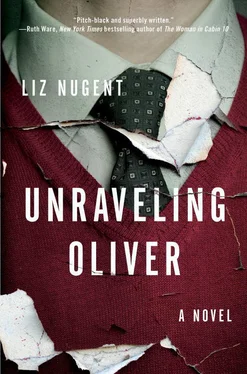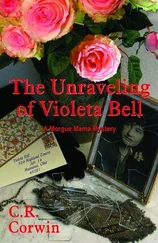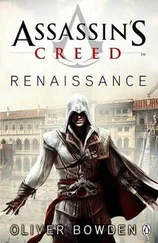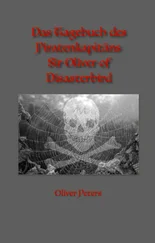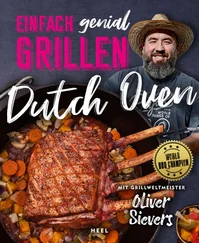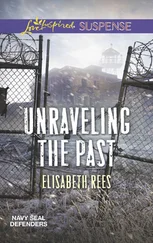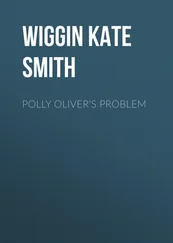The revelations certainly upset his wife. We talked through the night until almost dawn. It seems that Papa’s stories were what attracted her to Oliver in the first place. He was shrewd with the stories, releasing just one every year or two, and has made them last for all this time, although it seems now that he has run out, as he has published nothing for five years. We worked out that he had spent almost twenty-five years carefully translating and plagiarizing my father’s work. Alice insisted that he was currently working on a book but that he was finding this one particularly difficult. It was to be his first adult novel, but he claimed to be suffering from writer’s block.
It seemed that Oliver was not even a good husband to Alice. She was aware that he had been unfaithful. Possibly even with her traveling companion, Moya. He was dismissive of her work and of her opinions. He was intolerant of her friends. He could not get along with her mentally challenged brother, and upset him to the point where the unfortunate man became aggressive and had to be put into a residential care home.
“Why do you stay? Why do you not leave him?”
“He needs me… needed me.” She corrected herself. “He told me that he could not write the stories without me.”
“What about love?”
“I thought that was love.”
The next day, Alice and Moya left together. Moya returned alone some hours later. The ridiculous woman was leaving her husband—for our solitary single man, it seemed. Always with the Irish, there is the drama!
• • •
Alice emailed me to tell me that she had found the leather-bound books and was going to confront Oliver but asked for my patience. I never dreamed that he would attack her, but I was keeping abreast of all news of him, and when I read later that he had been arrested for her assault, I realized that I must somehow be involved, that the books were the source of the trouble. I contacted the Irish authorities. I supplied the motive for the attack. I am finally going to Ireland, to give evidence at the trial. The lawyers tell me that he will admit to the plagiarism. I am horrified by what he did to Alice, and a part of me wishes I had never met her and that we had never discovered the truth.
The truth remains. Oliver has betrayed us all.
Papa did not write those stories for publication. He wrote them for me and for my precious little boy. I know it should not matter to me that Oliver made money from them. If I had found the books, I do not think it would have occurred to me to publish them, but they were mine.
What kind of a man is Oliver to have done such a thing? I wonder if he really loved my father at all, if he even cared about my son. Was it an opportunistic moment, when he found the books intact amid the debris and thought he could just take them? Or had he been making secret copies all along, knowing that we would never publish them ourselves? Alice told me that Oliver had no mother to speak of and that he and his father had been long estranged, that in fact she never even met Oliver’s father. So could it be that after my father’s death, he found the books and thought of them as his inheritance?
I recalled what Oliver said to Laura about her pregnancy, about not wanting another child. But then I think of Laura’s infidelity, and it stops making sense. Perhaps Oliver was trying to make a family out of mine. Who knows? He is just a thief.
Of course, I went into the town the day after Alice left and bought all of the books. The stories are as I remember them, but astonishingly, Alice’s illustration of the central character, Prince Felix, is uncannily the image of my boy, Jean-Luc.
The month before I left school, my father sent a check for fifty pounds in the post and a curt note suggesting that I find myself a flat and a job as I was soon to be eighteen and could not expect to be supported any further.
I had no idea what I was going to do with my life, but Father Daniel took me aside and counseled that my grades were good enough for university and that I could always come back to the school to teach when I had my degree. He came to my rescue once more and offered to pay my college fees and found me a tiny apartment in Rathmines.
It took quite a while to get used to living alone and preparing food for myself. Up till then, my life had been organized with military precision. I had become institutionalized in my years at boarding school. I was not used to being alone. I wrote to my father telling him of my new address but received no reply. I worked in a fruit market early mornings and weekends to support myself and to keep myself occupied, but college life was enjoyable nonetheless. A lot of students were living away from home and I could pretend to be like everybody else. I was not an outstanding student by any means, although I was top of the class in French. Trying to work and socialize on my meager earnings meant that study was sometimes neglected, but I managed to earn respectable grades despite that.
Having had a taste for freedom, I knew for sure that I could not go back to the school, nor had I the temperament for teaching.
By early 1973, I was dating Laura. Wild and beautiful Laura. So different from the other girls. I loved her, I thought. Maybe if we had stayed in Dublin that summer, everything would have turned out differently; maybe we would be married, happily ever after married.
As my second-year exams approached, Laura hatched a plan for us to spend a summer abroad on a working holiday. I thought it was a pipe dream, but Laura wrote to farms and vineyards and canning factories all over Europe looking for jobs and eventually got a response from a farm in Aquitaine. We were invited to an estate in a tiny town called Clochamps. There was a château and a vineyard, an olive grove and an orchard. It sounded ideal. Mindful of my previous summers in captivity, I was eager to travel, expand my horizons, and see what the world had to offer, and also to spend time with Laura. The plan, of course, was somewhat derailed by Laura’s parents, who, although fond of me, did not approve of the two of us going off together by ourselves. However, there was nobody more determined than Laura, who persuaded her brother Michael and five others to join us. Chaperones, in the eyes of her parents. It was to be paid work with accommodation included, and thankfully, Father Daniel agreed to lend me the fare to get there.
I loved it from the moment I arrived. I was used to manual labor from my extracurricular job in the markets, and while the others took a little while to adjust, I found it relatively easy. Irish summers could be gray, damp, and miserable, but here the sun shone every day, and although we could see marvelous lightning storms at night at the other end of our valley, the rain did not fall in Clochamps. My college friends complained of heat and sunburn, but I easily acclimatized. The meals provided gratis were simple but excellent, wine was free too, and Laura and I easily found time and space to be intimate away from her brother and the others.
The elderly owner of Château d’Aigse befriended me early on. I translated for the others. My spoken and written French were good, and he was genuinely interested in me and wanted to know what I was studying, how I intended to use my degree, my plans for the future. After two weeks, Monsieur asked if I would be interested in doing some transcribing work for him. I readily agreed, thinking that the office work would involve typing invoices or some kind of record keeping. That is what he led his daughter to believe. He asked for my discretion and overpaid me. He introduced me to his grandson, Jean-Luc, the most beautiful and charming child I will ever know.
Читать дальше
